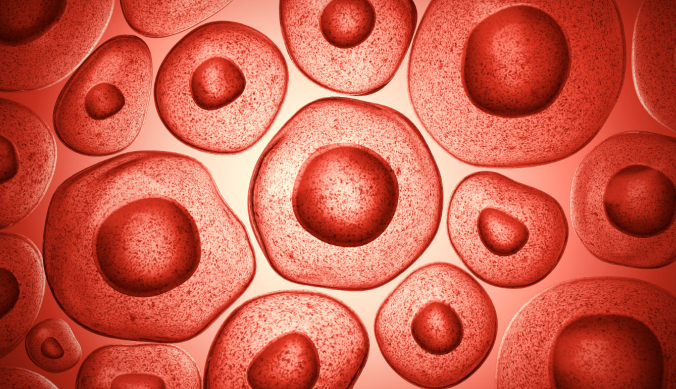What are the differences between solid and liquid tumors? Solid and liquid tumors are types of tumors that lead to different cancers. Both types describe cells that proliferate uncontrollably. However, while solid tumors form one or multiple masses, liquid tumors circulate throughout the body via the bloodstream.
What are the differences between solid and liquid tumors? A solid tumor is a mass of solid cancer cells that grows in organ systems and can appear anywhere in the body, like breast cancer. Liquid tumors, on the other hand, are cancers that develop in the blood, bone marrow, or lymph nodes, and include leukemia, lymphoma, and myeloma.
What Is a Solid Tumor?
When discussing cancer and tumor types, one crucial question often arises: What are solid tumors? This question is vital in the realm of oncology, and understanding it can significantly aid in comprehending various cancer types and their treatments.
A solid tumor is a mass of cells that clump together, unlike cancers of the blood, such as leukemia, which do not form solid masses. These tumors can be either benign (non-cancerous) or malignant (cancerous). The type of tumor significantly impacts the treatment approach and prognosis.

Solid tumors are classified based on their origin in the body. They can originate in bone, muscle, or organs like the liver and lungs. Some common types include carcinomas, sarcomas, lymphomas, and gliomas. Each tumor types has unique characteristics and behaviors, influencing treatment decisions.
Understanding what are solid tumors is crucial for early detection and treatment. Awareness of these tumors’ symptoms and characteristics can lead to timely medical consultations, increasing the chances of effective treatment and recovery.
What Are the Types of Solid Tumors?
Solid tumors are categorized based on where they originate in the body and the type of cells they contain. Here are the main types of solid tumors:
- Carcinomas: These are the most common type of solid tumors and originate in the epithelial cells, which cover the inside and outside surfaces of the body. Carcinomas include breast, lung, colon, prostate, and skin cancers.
- Sarcomas: These tumors arise from connective tissues such as bone, cartilage, fat, muscle, or blood vessels. Examples include osteosarcoma (bone), liposarcoma (fat), and leiomyosarcoma (muscle).
- Lymphomas: Although commonly classified as a blood cancer, some lymphomas can form solid tumor masses. These originate in the lymphatic system, which is part of the immune system.
- Melanomas: Originating from the pigment-producing cells in the skin known as melanocytes, melanomas are a serious form of skin cancer.
Neuroendocrine tumors (NETs), germ cell tumors, gliomas are some other types of solid tumors.
How Many Cancer Types Are Solid Tumors?
Tight and gap junctions allow irregular and heterotypic cells to communicate in solid tumors. In contrast to liquid tumors, as cells expand, they create a “lump” known as a solid tumor, which often does not include pockets of fluid, pus, air, or other substances. Solid tumors can be non-cancerous, pre-cancerous, or cancerous.
Solid tumors account for approximately 90 percent of adult cancers. They can appear in a variety of locations across the human body, including the breast, lung, prostate, colon, melanoma, bladder, and kidney.
Examples of localized solid tumors:
- Carcinomas,
- Sarcomas,
- Lymphomas,
- Carcinosarcomas.
What Is the Most Common Solid Cancer?
When considering what are tumors, it’s essential to differentiate between solid and liquid types. Solid tumors are those that form a tangible mass in the body, clearly what’s in between firm and fluid. They can occur in organs, bones, muscles, and connective tissues.
The ten most common solid cancers in the US are: prostate, breast, lung and bronchus, colon and rectal, urinary bladder, thyroid, kidney and renal pelvis, uterine corpus, oral cavity, ovarian.
Understanding solid tumor rules is crucial for effective cancer management. These rules involve diagnostic procedures like biopsies, imaging tests, and understanding tumor staging and grading. Treatment varies depending on the cancer type and may include surgery, radiation, chemotherapy, or targeted therapy.
Recognizing the most common solid cancers and comprehending what are tumors, particularly malignant tumors, is vital in the fight against cancer. Awareness of solid tumor rules aids in early detection and effective treatment strategies, significantly impacting patient outcomes.
What Is a Liquid Tumor?
In the diverse landscape of oncology, understanding the distinction between solid tumors and liquid tumors is critical. While many are familiar with solid tumors, the concept of a liquid tumor might be less known.
Cancerous tumors can be broadly categorized into solid and liquid tumors. Solid tumors form lumps or masses in specific organs or tissues, such as in the case of breast or lung cancer. On the other hand, liquid tumors involve cancer cells that circulate through the bloodstream or lymphatic system, rather than forming a solid mass.
A liquid tumor refers to cancers that affect the blood, bone marrow, or lymphatic system. Unlike solid tumors, which form masses in organs or tissues, liquid tumors are characterized by the presence of cancerous cells in bodily fluids. The most common types include leukemia, lymphoma, and myeloma.
Among the most common types of liquid tumors, leukemia is a prominent example, affecting the blood and bone marrow. Lymphoma targets the lymphatic system, and myeloma impacts plasma cells. Each type has unique characteristics and treatment protocols.
Treatment for liquid tumors may include chemotherapy, radiation therapy, stem cell transplantation, and targeted therapies. The prognosis depends on various factors, including the type of tumor, stage at diagnosis, and the patient’s overall health.
Which Cancer Types are a Liquid Tumor?
The primary types of liquid tumors or in a non-solid state, include various forms of blood cancer:
Leukemia: This type of liquid tumor involves an overproduction of abnormal white blood cells, which can hinder the body’s infection-fighting ability and affect organ function.
Lymphoma: This form of liquid tumor targets the lymphatic system, particularly affecting lymphocytes, a vital type of white blood cell in the immune system.
Multiple Myeloma: As a liquid tumor, this affects plasma cells in bone marrow, which are crucial for antibody production and immune response.
Diagnosing liquid tumors typically involves blood tests, bone marrow examinations, and sometimes imaging tests. Treatment plans vary based on cancer type and stage, and can include chemotherapy, radiation therapy, stem cell transplantation, and targeted therapy.
What Is the Most Common Liquid Cancer?
Liquid cancer, a unique type of cancer, contrasts starkly with solid tumors that form in organs or tissues such as connective tissue or bones. The most common liquid cancers are types of blood cancer.
The most prevalent liquid cancer is leukemia. This type of cancer affects the blood and bone marrow, leading to the overproduction of abnormal white blood cells. These cells impede the body’s ability to fight infection and can cause severe health issues.
In contrast to liquid cancers, solid tumors, such as benign tumors or malignant tumors in connective tissue, are localized masses of abnormal cells. Benign tumors, unlike cancerous tumors, do not spread to other parts of the body and are often less serious.












